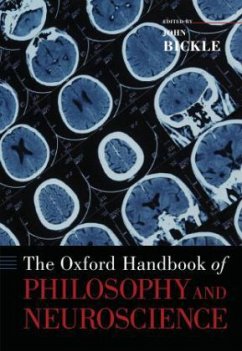The Oxford Handbook of Philosophy and Neuroscience is a state-of-the-art collection of interdisciplinary research spanning philosophy (of science, mind, and ethics) and current neuroscience. Containing chapters written by some of the most prominent philosophers working in this area, and in some cases co-authored with neuroscientists, this volume reflects both the breadth and depth of current work in this exciting field. Topics include the nature of explanation in
neuroscience; whether and how current neuroscience is reductionistic; consequences of current research on the neurobiology of learning and memory, perception and sensation, neurocomputational modeling, and neuroanatomy; the burgeoning field of neuroethics and the neurobiology of motivation that increasingly informs it;
implications from neurology and clinical neuropsychology, especially in light of some bizarre symptoms involving misrepresentations of self; the extent and consequences of multiple realization in actual neuroscience; the new field of neuroeudamonia; and the neurophilosophy of subjectivity.
This volume will interest philosophers working in numerous fields who wish to see how current neuroscience is being brought to bear directly on philosophical issues. It will also be of interest to neuroscientists who wish to learn how the research programs of some of their colleagues are being enriched by interaction with philosophers, and finally to those working in any interdisciplinary field who wish to see how two seemingly disparate disciplines--one traditional and humanistic, the other
new and scientific--are being brought together to both disciplines' mutual benefit.
neuroscience; whether and how current neuroscience is reductionistic; consequences of current research on the neurobiology of learning and memory, perception and sensation, neurocomputational modeling, and neuroanatomy; the burgeoning field of neuroethics and the neurobiology of motivation that increasingly informs it;
implications from neurology and clinical neuropsychology, especially in light of some bizarre symptoms involving misrepresentations of self; the extent and consequences of multiple realization in actual neuroscience; the new field of neuroeudamonia; and the neurophilosophy of subjectivity.
This volume will interest philosophers working in numerous fields who wish to see how current neuroscience is being brought to bear directly on philosophical issues. It will also be of interest to neuroscientists who wish to learn how the research programs of some of their colleagues are being enriched by interaction with philosophers, and finally to those working in any interdisciplinary field who wish to see how two seemingly disparate disciplines--one traditional and humanistic, the other
new and scientific--are being brought together to both disciplines' mutual benefit.

